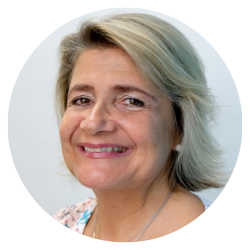What Would Your Team Be Like if Everyone Was Working to Their Strengths?
At Happy, we use the Strengths Finder by Marcus Buckingham to find out what each team member's strengths are. In each team, everyone shares their strengths and the tasks that they enjoy doing the most to ensure that everyone can work to their strengths as much as possible. What would your team be like if everyone was working to their strengths? How much more productive would they be?
In this short video from the 2019 Happy Workplaces Conference, Cathy Busani, Happy's Managing Director, explains the benefits of working to your strengths.
Hi, we are Happy
We are leading a movement to create happy, empowered and productive workplaces.
How can we help you and your people to find joy in at least 80% of your work?
What Would Your Team Be Like if Everyone Was Working to Their Strengths?
The first question I want to ask generally is what could your team be like if everyone was working to their strengths and at their best? What would that be like? Who fancies answering that question for me?
Perfect – a happy and productive team. Who else wants to share what that would be like? Definitely, focused and driven. Energised – lovely word. It’s really interesting, as leaders we often want to set the vision, but actually when people are working to their strengths they’re energised to go in the direction you’re going in. You don’t have to drag them with you. Yes, absolutely, if we’re working to our strengths we’re doing what we are best at, we’re much more likely to be working smarter.
I don’t know about you, but when I’m working to my strengths it’s effortless. There’s always ways I can improve. Just like Marcus Buckingham said, there’s always things you can do better and make better, but actually it feels effortless, it looks easy. When you see somebody making something look easy, chances are they’re working to their strengths.
So one of the very first things that you can do is have that conversation with your team – what do you love to do? What gets you up in the morning? What helps you feel magnificent? So just starting by asking those questions can make a difference.
"What could your team be like if everyone was working to their strengths and at their best?" asked Happy's Managing Director, Cathy Busani, at the 2019 Happy Workplaces Conference.
By working to their strengths, staff will feel happy, productive, focused, and energised. Very often (though not always!), tasks that work to their strengths is also the tasks that bring them the most happiness at work.
"As leaders we often want to set the vision, but actually when people are working to their strengths they’re energised to go in the direction you’re going in. You don’t have to drag them with you," explained Cathy.
Working to their strengths also means that your staff will find smarter ways of working and will continuously look to develop their skills — increasing productivity and efficiency.
So how can you create strengths-based working at your organisation? "One of the very first things that you can do is have that conversation with your team – what do you love to do? What gets you up in the morning? What helps you feel magnificent? So just starting by asking those questions can make a difference."
Resources and related content
- Five Key Attributes of the Most Effective Leaders — This blog looks at the idea of Liz Wiseman's book Multipliers: How the Best Leaders Make Everyone Smarter. Multipliers are leaders who can bring out the intelligence and unique abilities of the entire workforce. This comes through inspiring and challenging teams, engaging them in decision-making, and allowing them to use their talents.
- Why a Non-Profit Scrapped Their Appraisals Process — Rather than using an annual appraisal to give staff feedback, embed a coaching culture in your organisation. "You can give effective coaching and feedback regularly, in short discussions, to help people come to their own conclusions on their performance," explains Sophie Bryan.
- The COOK Model for Great Relationships at Work — In this two- and a half-minute video from 2017 Happy Workplaces CEO Conference, Rosie Brown talks about how COOK has implemented a model for relationships at work, and how this has helped teams to work together better.
Keep informed about happy workplaces
Sign up to Henry's monthly Happy Manifesto newsletter, full of tips and inspiration to help you to create a happy, engaged workplace.

Learn the 10 core principles to create a happy and productive workplace in Henry Stewart's book, The Happy Manifesto.
About Cathy Busani
At Happy since March 1995, Cathy originally started as an IT trainer. Although having little experience in the industry, within just six months she was voted in by the training team as their manager. Shortly after, she took over the role of Managing Director.
Since 2003, Cathy’s focus has been on helping others to feel joyful at work. Through consultancy, a wide range of training programmes, conflict management, executive coaching, and as an impassioned conference speaker, she enables people to be the best version of themselves. She delivers positive organisational change, enabling those she works with to create great workplaces which are happier, more productive and financially secure.
Next Conference: Women in Leadership Online Conference
Save the date for our online conference on 12th November 2025, celebrating women in leadership.
You will hear from inspiring female leaders about how they have created happy and empowered workplaces.
There will be interaction, discussion, space for reflection and opportunities to network with other leaders.
Related courses
The Happy Leadership Programme
Brave Leadership: One-Year Leadership Development Programme for Women
Level 7 Senior Leadership Apprenticeship Programme
Not what you need? Take a look at all of our off-the-shelf Leadership and Management programmes.
